

What's Better Than Books?
Book Reviews, Author Interviews, Guest Posts, Ratings, and More!
#BookReview Atlas: The Story of Pa Salt by Lucinda Riley & Harry Whittaker @lucindariley @HarryTwittaker @PGCBooks #AtlasTheStoryofPaSalt #LucindaRiley #HarryWhittaker #TheSevenSistersSeries #PGCBooks

Spanning a lifetime of love and loss, crossing borders and oceans, Atlas: The Story of Pa Salt, co-authored by her son Harry Whittaker, draws Lucinda Riley’s saga to its stunning, unforgettable conclusion.
1928, Paris. A boy is found, moments from death, and taken in by a kindly family. Gentle, precocious, talented, he flourishes in his new home, and the family show him a life he hadn’t dreamed possible. But he refuses to speak a word about who he really is.
As he grows into a young man, falling in love and taking classes at the prestigious Conservatoire de Paris, he can almost forget the terrors of his past, or the promise he has vowed to keep. But across Europe an evil is rising, and no-one’s safety is certain. In his heart, he knows the time will come when he must flee once more.
2008, the Aegean. The seven sisters are gathered together for the first time, on board the Titan, to say a final goodbye to the enigmatic father they loved so dearly.
To the surprise of everyone, it is the missing sister who Pa Salt has chosen to entrust with the clue to their pasts. But for every truth revealed, another question emerges. The sisters must confront the idea that their adored father was someone they barely knew. And even more shockingly: that these long-buried secrets may still have consequences for them today.
In this epic conclusion to the Seven Sisters series, everything will be revealed.
Fascinating, heartfelt, and absorbing!
Atlas: The Story of Pa Salt is the eighth instalment in The Seven Sisters series, set from 1928 to 2008, that sweeps you away into the life of Pa Salt, the loving father of seven girls who, after gathering together for the first time in a long time to celebrate his life, finally have the opportunity with the journal he left behind to unravel the secrets of his past and discover how they all came together to become one big family.
The prose is eloquent and expressive. The characters are considerate, caring, and troubled. And the plot is a beautifully written, heart-wrenching tale of life, loss, familial drama, self-discovery, grief, friendship, forgiveness, unconditional love, courage, hope, selflessness, revenge, and survival.
Overall, Atlas: The Story of Pa Salt is the brilliant conclusion to an extraordinary saga that is a testament to the amazing storytelling abilities of the late Lucinda Riley, as well as what must have been an incredibly difficult yet unbelievable literary achievement by her son Harry Whittaker. It is hard to believe that this fascinating, mysterious, exceptionally absorbing series has come to an end, but what a way to end. It doesn’t get much better than this. And even though it’s a little bittersweet to say goodbye to these characters I’ve come to know and love over these past eight books, it’s been a true pleasure and sheer delight to have been able to immerse myself in the histories, lives, loves and losses of them all.
This novel is available now.
Pick up a copy from your favourite retailer or from one of the following links.

Thank you to PGC Books for gifting me a copy in exchange for an honest review.
About Harry Whittaker

Harry Whittaker grew up in the 1990s and spent the first few years of his life on the rural west coast of Ireland. The son of the author Lucinda Riley, Harry became a storyteller himself, as an award-winning radio presenter for the BBC and a member of one of the UK’s most renowned improv troupes. In 2019, Harry and Lucinda co-authored the Guardian Angels series for children – four reassuring, timeless stories addressing worries that a small child may have.
After Lucinda’s death in 2021, it was announced that Harry would complete the Seven Sisters series on behalf of his late mother. Atlas: The Story of Pa Salt publishes globally in May 2023.
Harry lives in Yorkshire, England.
Website | Twitter | Facebook | Instagram
About Lucinda Riley

Lucinda Riley was born in Ireland and, after an early career as an actress in film, theatre and television, wrote her first book aged twenty-four.
Her books have been translated into thirty-seven languages and sold thirty million copies worldwide. She is a New York Times and Sunday Times number one bestseller.Lucinda's Seven Sisters series, which tells the story of adopted sisters and is inspired by the mythology of the famous star cluster, has become a global phenomenon. The series is a number one bestseller across the world and is currently in development with a major TV production company.
Though she brought up her four children mostly in Norfolk in England, in 2015 Lucinda fulfilled her dream of buying a remote farmhouse in West Cork, Ireland, which she always felt was her spiritual home, and indeed this was where her last five books were written. Lucinda was diagnosed with cancer in 2017 and died in June 2021
Website | Twitter | Facebook | Goodreads | Instagram

Share this:
- Click to share on Twitter (Opens in new window)
- Click to share on Facebook (Opens in new window)
- Click to share on Pinterest (Opens in new window)
- Click to email a link to a friend (Opens in new window)
Leave a Reply Cancel reply
Your email address will not be published. Required fields are marked *
Notify me of follow-up comments by email.
Notify me of new posts by email.
This site uses Akismet to reduce spam. Learn how your comment data is processed .
Atlas, a review by Joanna

Atlas – The Story of Pa Salt
Lucinda Riley
Published May 11, 2023
This is the eighth and final book in the bestselling Seven Sisters series, about a family of young women who were all adopted by a mysterious billionaire as babies, and named for the stars of the Pleiades constellation. I’ve read them all in order in the last two years, and enjoyed some more than others. The series was supposed to end with The Missing Sister, but the author, who was battling advanced cancer by this stage, realised the story was not complete, so entrusted her plot outline and notes for a final book about Atlas, the father, to her son, so he could publish it after she died. You definitely need to have read the earlier books to understand this one, which brings back characters from all of them – as it was I struggled to remember who everyone was and how the past characters connected with the modern ones.

Sharing is caring!
Leave a Reply Cancel reply
Your email address will not be published. Required fields are marked *
Save my name, email, and website in this browser for the next time I comment.
Never miss a review
Advertisement
Supported by
History Is a Nightmare
- Share full article
By Tom Bissell
- Aug. 29, 2004
CLOUD ATLAS
By David Mitchell.
509 pp. Random House. Paper, $14.95.
IT is not unheard of for a novelist of exceptional talent to write a deliberately difficult book. This urge does not necessarily result in novels with nameless characters, mutating typography or unpunctuated attempts to explore the aphotic realm of human consciousness. It is also not an urge unique to modernism or experimentalism. Some novelists just seem to say, What the hell. John Updike's odd (and wonderful) early novel ''The Centaur'' seems to have been written from this impulse, as do Philip Roth's equally bizarre novel ''The Breast,'' Norman Mailer's ''Why Are We in Vietnam?'' and Kazuo Ishiguro's ''Unconsoled.'' Among this crowd, the young British novelist David Mitchell stands out. Deliberately difficult novels are the only novels he seems to be interested in writing.
This is to the good; the tree of literature drops its best fruit after being shaken with conviction and intelligence. Mitchell is neither abstrusely arch nor a wizard of scenic dislocation. One does not sense that -- unlike, say, William Gaddis, Carole Maso or Walter Abish -- Mitchell is trying to chop down the tree of literature in order to replace it with something treelike. On the contrary, his prose is straightforward and, quite often, magnificent. Mitchell is as good at aphorism (''Faith, the least exclusive club on earth, has the craftiest doorman'') as he is at description (''Now and then goldfish splish and gleam like new pennies dropped in water''). The difficulty comes in how Mitchell chooses to construct his novels -- or rather, how he does not choose to construct his novels.
''Ghostwritten,'' his first, involves nine characters (a musician, a terrorist, a host-seeking poltergeist and so on) and nine different locales that have no formal connection to one another. The book's meaning is the readerly equivalent of an inkblot test. ''Number9Dream,'' his second, largely follows a single character through Tokyo and beyond, but the story fractures along so many stress lines of the possible and impossible -- confusion the book does almost nothing to repair -- that the novel becomes little more than a beautifully expressed fantasia. With ''Cloud Atlas,'' Mitchell has returned to the rather nutty method of ''Ghostwritten'': the novel gives us six separate stories, spanning the planet, that cover roughly 1,000 years of time. On one hand, Mitchell's strategy is boldly antithetical to what most narrative-driven novels have been up to since Cervantes. On the other hand, what Mitchell is doing is basically James Michener's ''Alaska'' with an I.Q. transplant.
''Cloud Atlas'' has already been published in England. The reviews have been messiah-worthy. (One critic wrote that the novel makes ''almost everything in contemporary fiction look like a squalid straggle of Nissen huts.'') In The Observer of London, Robert McCrum called ''Cloud Atlas'' ''a remarkable new novel by a significant talent,'' and made its Booker Prize nomination (''Number9Dream'' was a finalist) sound inevitable -- although The Sunday Telegraph caused a brief stir when it disclosed it would not review ''Cloud Atlas'' because its critic found the novel ''unreadable.''
''Cloud Atlas'' imposes a dizzying series of milieus, characters and conflicts upon us: a ship sailing amid some islands around New Zealand during the mid-19th century, wherein an American notary named Adam Ewing befriends, at risk to himself, a stowaway Moriori named Autua; a Belgian estate called Zedelghem in the 1930's, wherein a sexually indecisive aspiring composer named Robert Frobisher serves as amanuensis to an older, more accomplished composer; California during the 1970's, wherein a plucky journalist named Luisa Rey attempts to disclose an ''Erin Brockovich''-style industrial conspiracy; London during the here and now, wherein a 60-ish book editor named Tim Cavendish finds himself accidentally imprisoned in a home for the elderly; Korea in the (just) foreseeable future, wherein a genetically engineered ''fabricant'' named Sonmi-451 is interrogated for her crime of wanting to be fully human; and Hawaii in some distant and thoroughly annihilated future, wherein a young goatherd named Zachry bears unknowing witness to the final fall of humanity into superstition and violence and war.
With the exception of Zachry's tale, the book's thematic centerpiece, we visit each of these stories twice, in the following order: 1, 2, 3, 4, 5, 6, 5, 4, 3, 2, 1. Each story is written quite differently -- so much so that ''Cloud Atlas'' feels like a doggedly expert gloss on various writers and modes. The archaic Ewing section, rendered in journal form, becomes Defoe, possibly Melville. The epistolary Frobisher story is, perhaps, Isherwood or some other sturdy English master. The Luisa Rey section, written in breathlessly lousy prose, is some species of sub-Grisham. The urban comedy of Tim Cavendish's antics is well within Martin Amis's city limits. The plight of Sonmi-451 is Huxley (or ''Blade Runner''). And the daymare of Zachry's postapocalyptic world is something out of William S. Burroughs in a ''Cities of the Red Night'' mood. Taken as a whole, ''Cloud Atlas'' seeks to give the novel a steely new rigging of the possible. It is an impressive achievement. Unfortunately, impressive is usually all that it is.
It is a devious writer indeed who writes in such a way that the critic who finds himself unresponsive to the writer's vision feels like a philistine. So let it be said that Mitchell is, clearly, a genius. He writes as though at the helm of some perpetual dream machine, can evidently do anything, and his ambition is written in magma across this novel's every page. But ''Cloud Atlas'' is the sort of book that makes ambition seem slightly suspect.
The novel is frustrating not because it is too smart but because it is not nearly as smart as its author. Running across its muscularly told tales are two obvious connectors. The first is that every story is in some way ''read'' by a character in another (Ewing's journal is found by Frobisher, Frobisher's letters are read by Rey, Rey's story is submitted to the editor Cavendish, Cavendish's story becomes an old film watched by Sonmi-451, one of the gods worshiped in Zachry's world is Sonmi-451 herself). The second is the strongly implied notion that every central character is a reincarnation of a previous character, a philosophical conceit that in its basic elegance could have flapped from the pages of ''Jonathan Livingston Seagull.'' Cavendish himself addresses this as he mulls over the novel about Luisa Rey that was submitted to him: ''One or two things will have to go: the insinuation that Luisa Rey is this Robert Frobisher chap reincarnated, for example. Far too hippy-druggy -- new age.'' Self-mockery as self-protection is a very old gambit, certainly, but it is beneath a writer as brilliant as Mitchell.
To write a novel that resembles no other is a task that few writers ever feel prepared to essay. David Mitchell has written such a novel -- or almost has. It its need to render every kind of human experience, ''Cloud Atlas'' finds itself staring into the reflective waters of Joyce's ''Ulysses.'' Just as Joyce, in the scene that takes place in the cabman's shelter, found the hidden beauty of cliché-filled prose, so Mitchell does with his Luisa Rey story. Just as Joyce, in the late scene in which Bloom and Dedalus finally sit down together, explored the possibilities of a narrative driven by interrogation, so Mitchell does with his ruthlessly grilled ''fabricant,'' Sonmi-451. ''Cloud Atlas'' is friendlier than ''Ulysses'' but far less fallibly human. If Mitchell's virtuosity too often seems android, one suspects this says less about his achievement and more about the literature of formal innovation. This is a book that might very well move things forward. It is also a book that makes one wonder to what end things are being moved.
Explore More in Books
Want to know about the best books to read and the latest news start here..
James McBride’s novel sold a million copies, and he isn’t sure how he feels about that, as he considers the critical and commercial success of “The Heaven & Earth Grocery Store.”
How did gender become a scary word? Judith Butler, the theorist who got us talking about the subject , has answers.
You never know what’s going to go wrong in these graphic novels, where Circus tigers, giant spiders, shifting borders and motherhood all threaten to end life as we know it .
When the author Tommy Orange received an impassioned email from a teacher in the Bronx, he dropped everything to visit the students who inspired it.
Do you want to be a better reader? Here’s some helpful advice to show you how to get the most out of your literary endeavor .
Each week, top authors and critics join the Book Review’s podcast to talk about the latest news in the literary world. Listen here .
- Craft and Criticism
- Fiction and Poetry
- News and Culture
- Lit Hub Radio
- Reading Lists

- Literary Criticism
- Craft and Advice
- In Conversation
- On Translation
- Short Story
- From the Novel
- Bookstores and Libraries
- Film and TV
- Art and Photography
- Freeman’s
- The Virtual Book Channel
- Behind the Mic
- Beyond the Page
- The Cosmic Library
- The Critic and Her Publics
- Emergence Magazine
- Fiction/Non/Fiction
- First Draft: A Dialogue on Writing
- Future Fables
- The History of Literature
- I’m a Writer But
- Just the Right Book
- Lit Century
- The Literary Life with Mitchell Kaplan
- New Books Network
- Tor Presents: Voyage Into Genre
- Windham-Campbell Prizes Podcast
- Write-minded
- The Best of the Decade
- Best Reviewed Books
- BookMarks Daily Giveaway
- The Daily Thrill
- CrimeReads Daily Giveaway
News, Notes, Talk
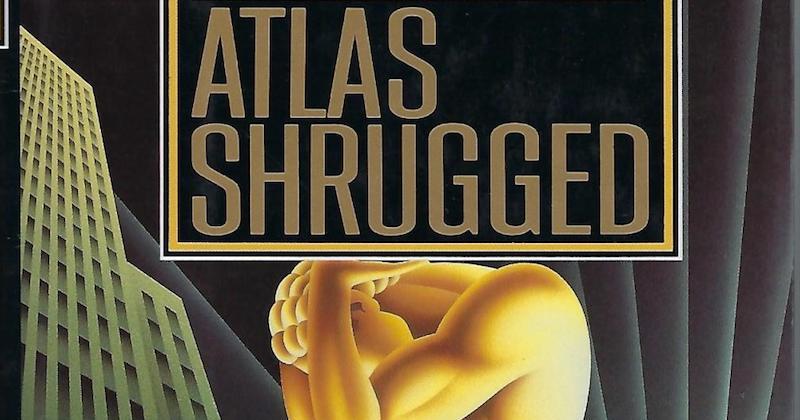

Read a 1957 review of Ayn Rand’s “excruciatingly awful” Atlas Shrugged .

Today is the sixty-sixth publication anniversary of Ayn Rand’s 1100-page magnum opus of unreadable doggerel libertarian science fiction, Atlas Shrugged .
Set in a dystopian United States in which private businesses suffer under increasingly burdensome laws and regulations (isn’t it always the way), it’s the story of railroad executive Dagny Taggart and her lover, steel magnate Hank Rearden, and their struggle against the “looters” who want to exploit their productivity.
Despite receiving largely negative reviews upon its release, the novel sold briskly and became a formative text for numerous conservative/libertarian ghouls politicians and thinkers, from Glenn Beck to Ayelet Shaked, Paul Ryan to Clarence Thomas.
One prominent conservative critic of Rand and her philosophy was William F. Buckley Jr., whose National Review published this scathing review of the novel by (Communist spy turned HUAC whistleblower turned book critic) Whittaker Chambers in December of ’57.
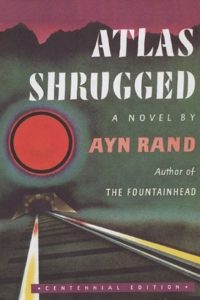
Run for your life from any man who tells you that money is evil. That sentence is the leper’s bell of an approaching looter .
“The news about this book seems to me to be that any ordinarily sensible head could not possibly take it seriously, and that, apparently, a good many do. Somebody has called it: ‘Excruciatingly awful.’ I find it a remarkably silly book. It is certainly a bumptious one. Its story is preposterous. It reports the final stages of a final conflict (locale: chiefly the United States, some indefinite years hence) between the harried ranks of free enterprise and the ‘looters.’ These are proponents of proscriptive taxes, government ownership, labor, etc., etc. The mischief here is that the author, dodging into fiction, nevertheless counts on your reading it as political reality. ‘This,’ she is saying in effect, ‘is how things really are. These are the real issues, the real sides. Only your blindness keeps you from seeing it, which, happily, I have come to rescue you from.’
Since a great many of us dislike much that Miss Rand dislikes, quite as heartily as she does, many incline to take her at her word. It is the more persuasive, in some quarters, because the author deals wholly in the blackest blacks and the whitest whites. In this fiction everything, everybody, is either all good or all bad, without any of those intermediate shades which, in life, complicate reality and perplex the eye that seeks to probe it truly. This kind of simplifying pattern, of course, gives charm to most primitive storyknown as: The War between the Children of Light and the Children of Darkness. In modern dress, it is a class war. Both sides to it are caricatures.
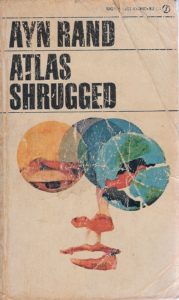
“…the strenuously sterile world of Atlas Shrugged is scarcely a place for children. You speculate that, in life, children probably irk the author and may make her uneasy. How could it be otherwise when she admiringly names a banker character (by what seems to me a humorless master-stroke): Midas Mulligan? You may fool some adults; you can’t fool little boys and girls with such stuff–not for long. They may not know just what is out of line, but they stir uneasily. The Children of Darkness are caricatures, too; and they are really oozy. But at least they are caricatures of something identifiable. Their archetypes are Left-Liberals, New Dealers, Welfare Statists, One Worlders, or, at any rate, such ogreish semblances of these as may stalk the nightmares of those who think little about people as people, but tend to think a great deal in labels and effigies.
In Atlas Shrugged , all this debased inhuman riffraff is lumped as ‘looters.’ This is a fairly inspired epithet. It enables the author to skewer on one invective word everything and everybody that she fears and hates. This spares her the playguy business of performing one service that her fiction might have performed, namely: that of examining in human depth how so feeble a lot came to exist at all, let alone be powerful enough to be worth hating and fearing. Instead, she bundles them into one undifferentiated damnation.
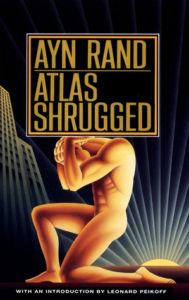
“So the Children of Light win handily by declaring a general strike of brains, of which they have a monopoly, letting the world go, literally, to smash. In the end, they troop out of their Rocky Mountain hideaway to repossess the ruins. It is then, in the book’s last line, that a character traces in the dir, over the desolate earth, the Sign of the Dollar, in lieu of the Sign of the Cross, and in token that a suitably prostrate mankind is at last ready, for its sins, to be redeemed from the related evils of religion and social reform (the ‘mysticism of mind’ and the ‘mysticism of muscle’). That Dollar Sign is not merely provocative, though we sense a sophomoric intent to raise the pious hair on susceptible heads. More importantly, it is meant to seal the fact that mankind is ready to submit abjectly to an elite of technocrats, and their accessories, in a New Order, enlightened and instructed by Miss Rand’s ideas that the good life is one which ‘has resolved personal worth into exchange value,’ ‘has left no other nexus between man and man than naked self interest, than callous ‘cash-payment.’ The author is explicit, in fact deafening, about these prerequisites. Lest you should be in any doubt after 1,168 pages, she assures you with a final stamp of the foot in a postscript: ‘And I mean it.’
“ Atlas Shrugged can be called a novel only by devaluing the term. It is a massive tract for the times. Its story merely serves Miss Rand to get the customers inside the tent, and as a soapbox for delivering her Message. The Message is the thing. It is, in sum, a forthright philosophic materialism.
“Randian Man, at least in his ruling caste, has to be held ‘heroic’ in order not to be beastly. And this, of course, suits the author’s economics and the politics that must arise from them. For politics, of course, arise, though the author of Atlas Shrugged stares stonily past them, as if this book were not what, in fact, it is, essentially–a political book. And here begins mischief. Systems of philosophic materialism, so long as they merely circle outside this world’s atmosphere, matter little to most of us. The trouble is that they keep coming down to earth. It is when a system of materialist ideas presumes to give positive answers to real problems of our real life that mischief starts. In an age like ours, in which a highly complex technological society is everywhere in a high state of instability, such answers, however philosophic, translate quickly into political realities. And in the degree to which problems of complexity and instability are most bewildering to masses of men, a temptation sets in to let some species of Big Brother solve and supervise them.
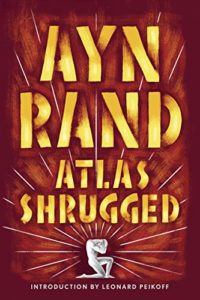
“Out of a lifetime of reading, I can recall no other book in which a tone of overriding arrogance was so implacably sustained. Its shrillness is without reprieve. Its dogmatism is without appeal. In addition, the mind which finds this tone natural to it shares other characteristics of its type. 1) It consistently mistakes raw force for strength, and the rawer the force, the more reverent the posture of the mind before it. 2) It supposes itself to be the bringer of a final revelation. Therefore, resistance to the Message cannot be tolerated because disagreement can never be merely honest, prudent, or just humanly fallible. Dissent from revelation so final (because, the author would say, so reasonable) can only be willfully wicked. There are ways of dealing with such wickedness, and, in fact, right reason itself enjoins them. From almost any page of Atlas Shrugged , a voice can be heard, from painful necessity, commanding: ‘To a gas chamber–go!’
“…we cannot help feeling at least a sympathetic pain before the sheer labor, discipline, and patient craftsmanship that went to making this mountain of words. But the words keep shouting us down. In the end that tone dominates. But it should be its own antidote, warning us that anything it shouts is best taken with the usual reservations with which we might sip a patent medicine. Some may like the flavor. In any case, the brew is probably without lasting ill effects. But it is not a cure for anything. Nor would we, ordinarily, place much confidence in the diagnosis of a doctor who supposes that the Hippocratic Oath is a kind of curse.”
– Whittaker Chambers, The National Review , December 28, 1957
to the Lithub Daily
April 1, 2024.
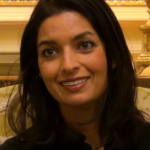
- Jhumpa Lahiri shares the syllabus for her recent course
- Thoughts on Trump’s new gig as a Bible salesman
- The life and work of Raymond Williams

Lit hub Radio

- RSS - Posts
Literary Hub
Created by Grove Atlantic and Electric Literature
Sign Up For Our Newsletters
How to Pitch Lit Hub
Advertisers: Contact Us
Privacy Policy
Support Lit Hub - Become A Member
Become a Lit Hub Supporting Member : Because Books Matter
For the past decade, Literary Hub has brought you the best of the book world for free—no paywall. But our future relies on you. In return for a donation, you’ll get an ad-free reading experience , exclusive editors’ picks, book giveaways, and our coveted Joan Didion Lit Hub tote bag . Most importantly, you’ll keep independent book coverage alive and thriving on the internet.

Become a member for as low as $5/month

Ryan Steck's The Real Book Spy
Full coverage of all your favorite thriller authors, and their characters, unlike anywhere else on the web , a book spy review: ‘the atlas maneuver’ by steve berry.

Set after the events of The Last Kingdom (2023), Cotton Malone has officially retired from the Magellan Billet, the secret division inside the Justice Department where he’s worked for well over a decade, and is now enjoying his quiet new life as an antiquarian book dealer in Copenhagen. It’s a career move that’s long been in the works. Though he’s been an effective operator and knows he can still kick in doors and get the job done when needed, Cotton has wanted to settle down for some time. Yet each time he tries, fate always seems to get in the way, and that’s exactly what happens here when a friend asks for a favor, kicking off a chain of events that takes Cotton Malone on one of his wildest and most dangerous adventures yet.
The friend in need of a favor is the CIA’s European station chief, Derrick Koger, who asks Cotton to protect a bank employee by the name of Kelly Austin in Switzerland. It’s a temporary assignment, and an easy one at that. Or so says Koger when he pitches the idea to Cotton, who reluctantly goes along with his old friend’s request. Right away, Cotton suspects that neither Koger nor Austin is being completely honest with him, but before he can get any real answers, there’s an attempt on the woman’s life, and Cotton is forced to step in and save the day. That leads to two major revelations. First, Cotton discovers that Kelly Austin is connected to the Bank of St. George in Luxembourg, the same bank where it’s believed that the Japanese hid millions of dollars worth of gold at the tail-end of World War II. More jarring, though, is the fact that Kelly Austin isn’t really who Koger said she was. In fact, that isn’t even her real name. How does Cotton know that? Because the woman in disguise is someone he has a long history with, and once she’s unmasked, the puzzle pieces begin to fall into place.
As the story unfolds, Cotton realizes that he’s inadvertently found himself in a war between the world’s oldest bank and the CIA . . . and that the only way to survive is to expose a conspiracy involving cryptocurrency—one that’ll leave Cotton, and readers, questioning everything they think they know about bitcoin.
Steve Berry has long drawn comparisons to fellow bestselling author Dan Brown, which feels right on the money (pun intended) here as his latest offering takes readers down the rabbit hole of cryptocurrency, exploring how digital currencies could, in theory, one day be weaponized. A quick six-page prologue set in the Philippines during the summer of 1945 helps to get the reader up to speed on something called the Black Eagle Trust, which plays a big role in the overall story, which is probably Berry’s most exciting premise since The Lost Order (2017). Part of the joy of reading Berry’s work is how much you learn along the way, all while being entertained and pulled into a story that, at times, feels a tad too real for comfort. There are stretches where there’s not much action, but pay attention because Berry uses those down moments to set up his plot, which is intricate and layered, constantly offsetting the action with steady character development and story beats you’ll need to know later on. When the action does start, it pops, with Berry proving he still knows his way around a gunfight. So does Cotton, who though he is no Jason Bourne, still has the skills to pull off some cool stuff when the moment calls for it. Overall, if you’re a fan of Dan Brown or Brad Meltzer, you’re going to love this book.
Steve Berry is back with another adventure that weaves an exciting tale of history with a chilling conspiracy, creating the kind of conflicting reading experience where you want to read slow and savor but just can’t put book the down and end up knocking it out in a single sitting. The Atlas Maneuver delivers one thrill after another and is easily Berry’s best book in years.
Book Details
Author: Steve Berry Series : Cotton Malone #18 Pages: 416 (Hardcover) ISBN : 1538721031 Publisher : Grand Central Publishing Release Date: February 20, 2024

Share this:
Facebook comments, discover more from ryan steck's the real book spy.
Subscribe now to keep reading and get access to the full archive.
Type your email…
Continue reading
- Bookreporter
- ReadingGroupGuides
- AuthorsOnTheWeb
The Book Report Network

Sign up for our newsletters!
Regular Features
Author spotlights, "bookreporter talks to" videos & podcasts, "bookaccino live: a lively talk about books", favorite monthly lists & picks, seasonal features, book festivals, sports features, bookshelves.
- Coming Soon
Newsletters
- Weekly Update
- On Sale This Week
- Spring Preview
- Winter Reading
- Holiday Cheer
- Fall Preview
- Summer Reading
Word of Mouth
Submitting a book for review, write the editor, you are here:, the atlas complex.

- About the Book
THE ATLAS COMPLEX marks the much-anticipated, heart-shattering conclusion in Olivie Blake's trilogy that began with the New York Times bestselling phenomenon, THE ATLAS SIX.
Only the extraordinary are chosen.
Only the cunning survive.
An explosive return to the library leaves the six Alexandrians vulnerable to the lethal terms of their recruitment.
Old alliances quickly fracture as the initiates take opposing strategies as to how to deal with the deadly bargain they have so far failed to uphold. Those who remain with the archives wrestle with the ethics of their astronomical abilities, while elsewhere, an unlikely pair from the Society cohort partner to influence politics on a global stage.
And still the outside world mobilizes to destroy them, while the Caretaker himself, Atlas Blakely, may yet succeed with a plan foreseen to have world-ending stakes. It’s a race to survive as the six Society recruits are faced with the question of what they're willing to betray for limitless power --- and who will be destroyed along the way.
The Atlas Complex by Olivie Blake
- Publication Date: January 9, 2024
- Genres: Fantasy , Fiction
- Hardcover: 496 pages
- Publisher: Tor Books
- ISBN-10: 1250855136
- ISBN-13: 9781250855138


IMAGES
VIDEO
COMMENTS
51,063 ratings3,778 reviews. Spanning a lifetime of love and loss, crossing borders and oceans, Atlas: The Story of Pa Salt, co-authored by her son Harry Whittaker, draws Lucinda Riley's saga to its stunning, unforgettable conclusion. 1928, Paris. A boy is found, moments from death, and taken in by a kindly family.
Book Rating: 10/10. Spanning a lifetime of love and loss, crossing borders and oceans, Atlas: The Story of Pa Salt, co-authored by her son Harry Whittaker, draws Lucinda Riley’s saga to its stunning, unforgettable conclusion. 1928, Paris. A boy is found, moments from death, and taken in by a kindly family.
Atlas, a review by Joanna. This is the eighth and final book in the bestselling Seven Sisters series, about a family of young women who were all adopted by a mysterious billionaire as babies, and named for the stars of the Pleiades constellation. I’ve read them all in order in the last two years, and enjoyed some more than others.
History Is a Nightmare. By Tom Bissell. Aug. 29, 2004. CLOUD ATLAS. By David Mitchell. 509 pp. Random House. Paper, $14.95. IT is not unheard of for a novelist of exceptional talent to write a ...
Today is the sixty-sixth publication anniversary of Ayn Rand’s 1100-page magnum opus of unreadable doggerel libertarian science fiction, Atlas Shrugged. Set in a dystopian United States in which private businesses suffer under increasingly burdensome laws and regulations (isn’t it always the way), it’s the story of railroad executive Dagny Taggart and her lover, steel magnate […]
The Atlas Six is a dense, complicated story that’s heavy on the character work and light on the plot until the last third or so of the novel kicks things into incredibly high gear, you’ll ...
A Book Spy Review: ‘The Atlas Maneuver’ by Steve Berry. Former Justice Department operative Cotton Malone is back and better than ever in this gripping new novel from New York Times bestselling author Steve Berry. Set after the events of The Last Kingdom (2023), Cotton Malone has officially retired from the Magellan Billet, the secret ...
THE ATLAS COMPLEX marks the much-anticipated, heart-shattering conclusion in Olivie Blake's trilogy that began with the New York Times bestselling phenomenon, THE ATLAS SIX. Only the extraordinary are chosen. Only the cunning survive. An explosive return to the library leaves the six Alexandrians vulnerable to the lethal terms of their recruitment.